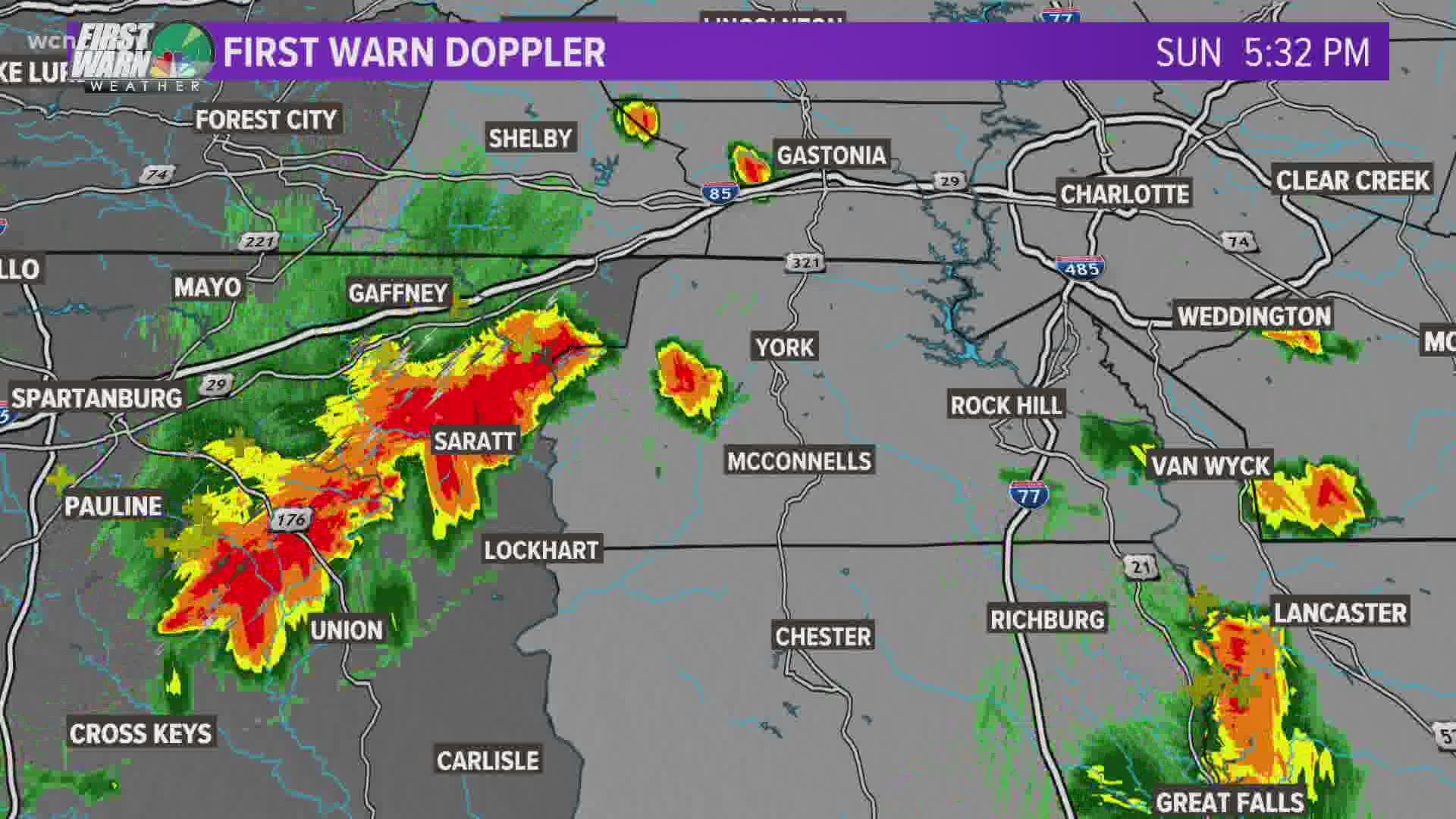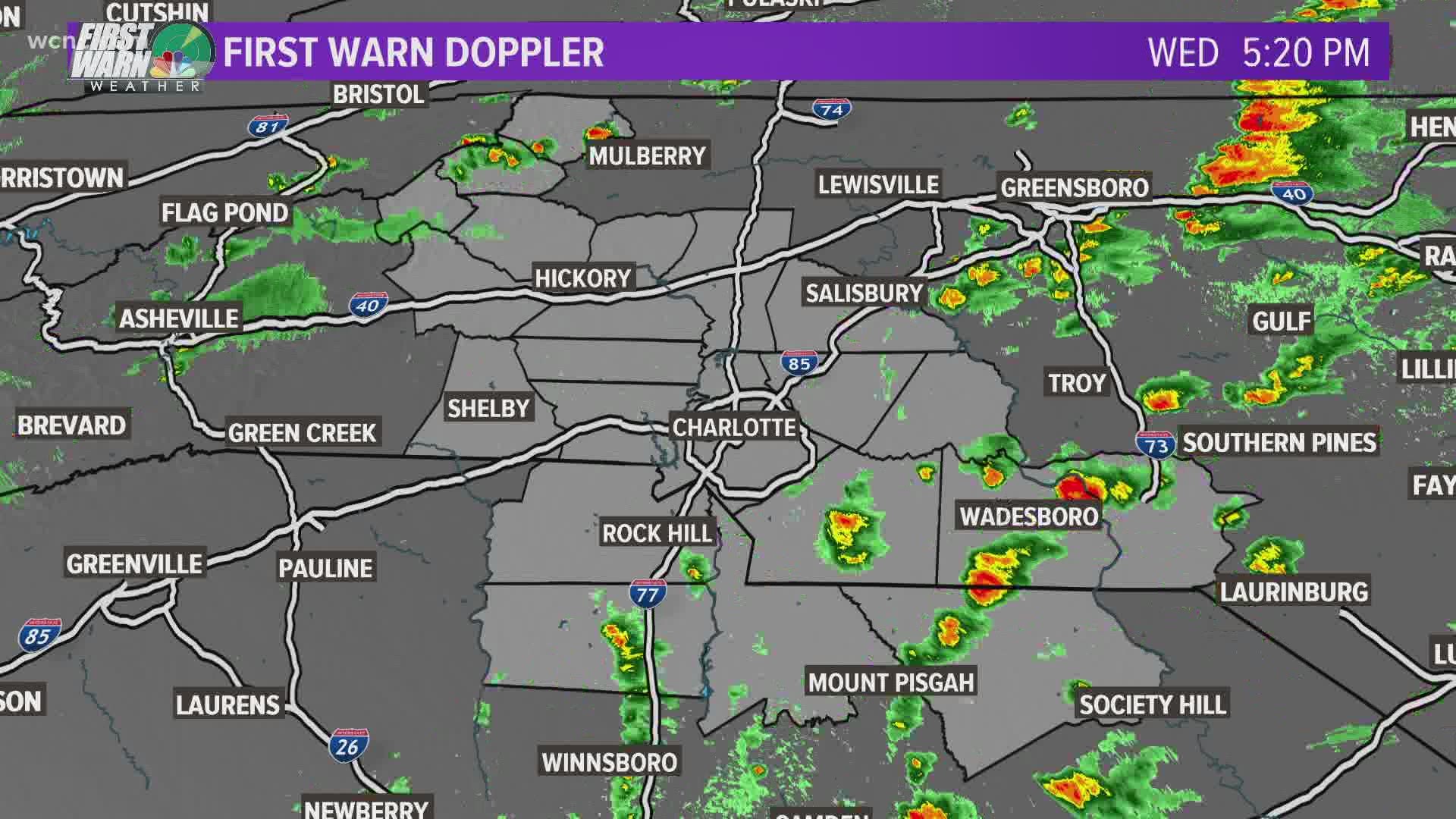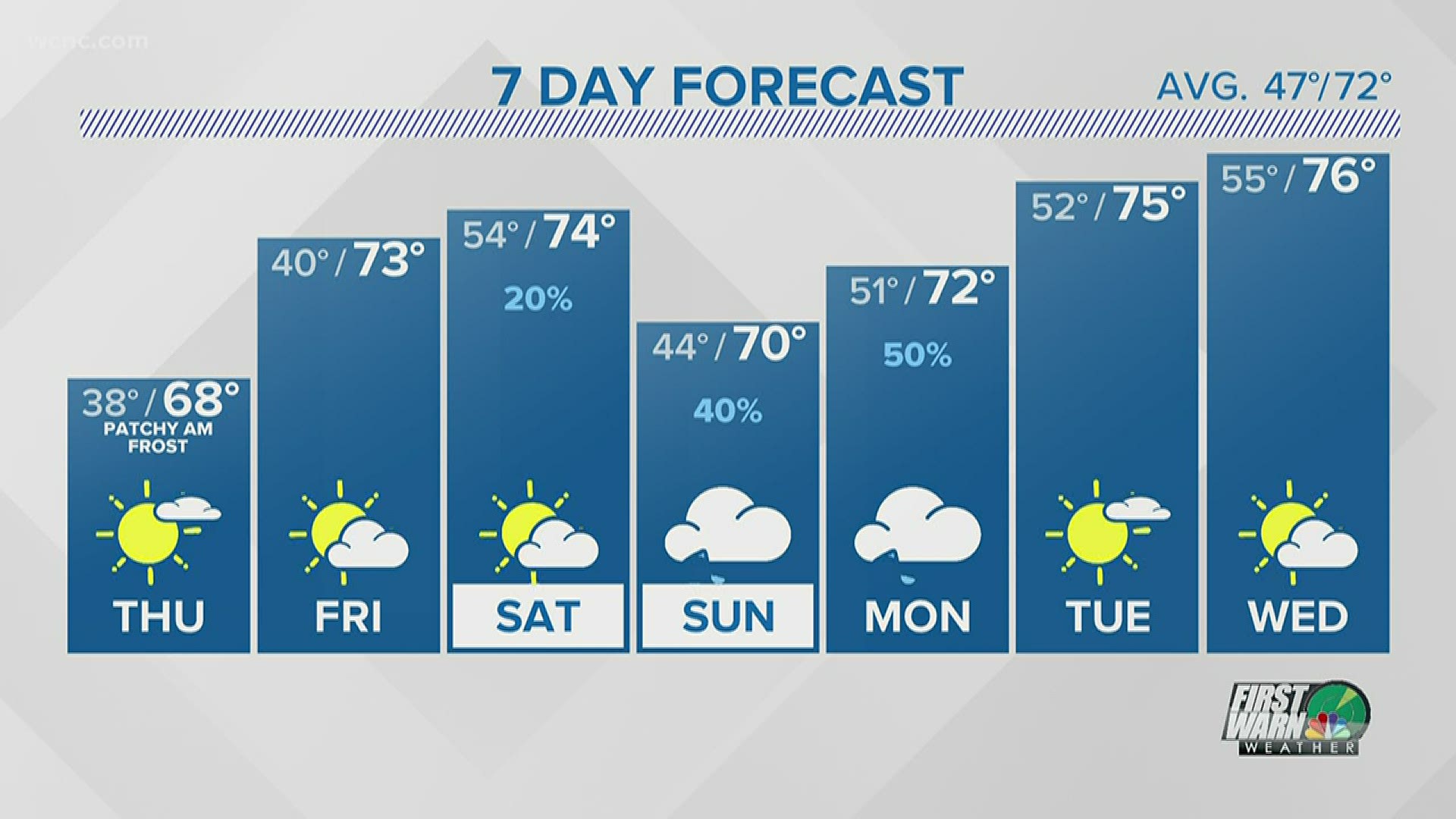Current Weather Conditions

Charlotte weather – As of this moment, Charlotte is experiencing a balmy summer day with clear skies and gentle breezes. The temperature currently stands at a comfortable 82 degrees Fahrenheit, with a humidity level of 55%. A light southwesterly wind blows at 10 miles per hour, carrying with it the faint scent of blooming flowers.
Forecast for the Next 24 Hours
The forecast for the next 24 hours predicts a continuation of the pleasant weather conditions. Temperatures are expected to remain in the low 80s, with humidity levels hovering around 50%. The skies will remain mostly clear, with a slight chance of isolated showers late in the evening. Wind speeds are anticipated to remain light, with gusts of up to 15 miles per hour possible.
Weather Warnings or Advisories
There are currently no weather warnings or advisories in effect for Charlotte. However, residents are advised to stay informed about the latest weather updates, as conditions can change rapidly during the summer months.
Historical Weather Data: Charlotte Weather

Charlotte’s climate is classified as humid subtropical, with hot, humid summers and mild winters. The city experiences all four seasons, with average temperatures ranging from 36°F in January to 86°F in July. Charlotte receives an average of 44 inches of precipitation per year, which is evenly distributed throughout the year.
Average Monthly Temperature, Precipitation, and Humidity, Charlotte weather
The following table shows the average temperature, precipitation, and humidity for each month of the year in Charlotte:
| Month | Average Temperature (°F) | Average Precipitation (inches) | Average Humidity (%) |
|---|---|---|---|
| January | 36 | 3.9 | 70 |
| February | 42 | 3.5 | 68 |
| March | 52 | 4.1 | 66 |
| April | 62 | 3.7 | 64 |
| May | 72 | 4.0 | 62 |
| June | 80 | 4.2 | 60 |
| July | 86 | 4.4 | 58 |
| August | 84 | 4.1 | 59 |
| September | 78 | 3.8 | 61 |
| October | 68 | 3.4 | 63 |
| November | 54 | 3.6 | 66 |
| December | 42 | 3.8 | 70 |
Average Monthly Temperature and Precipitation Over the Past 5 Years
The following graph shows the average monthly temperature and precipitation for Charlotte over the past 5 years:
[Insert graph here]
Trends and Patterns
The historical weather data for Charlotte shows a number of trends and patterns. First, the city’s average temperature has been increasing over the past 5 years. This trend is consistent with the global trend of rising temperatures due to climate change. Second, the city’s average precipitation has been decreasing over the past 5 years. This trend is also consistent with the global trend of decreasing precipitation in some areas due to climate change. Third, the city’s average humidity has been decreasing over the past 5 years. This trend is likely due to the city’s increasing average temperature, which causes the air to hold less moisture.
Weather Impact on Local Activities

Charlotte’s weather plays a significant role in shaping the city’s outdoor recreation, tourism, and transportation activities. Different weather conditions can have varying impacts on these aspects, influencing the choices and experiences of residents and visitors alike.
Outdoor Recreation
Charlotte’s mild climate allows for year-round outdoor recreation, but extreme weather conditions can pose challenges. During hot and humid summers, outdoor activities such as hiking, biking, and sports can be strenuous and uncomfortable. On the other hand, cold and icy winters can make it difficult to enjoy outdoor activities like walking, running, and biking.
Tourism
Charlotte’s tourism industry is heavily influenced by the weather. In spring and fall, when the weather is mild and pleasant, the city experiences an influx of tourists who come to enjoy outdoor attractions such as the U.S. National Whitewater Center and the Daniel Stowe Botanical Garden. However, during summer and winter, when extreme weather conditions prevail, tourism tends to decline as outdoor activities become less appealing.
Transportation
Weather conditions can also impact transportation in Charlotte. Heavy rainfall and flooding can lead to road closures and traffic delays, especially during rush hour. Snow and ice can make driving hazardous, causing accidents and slowing down traffic. Extreme weather events, such as hurricanes and tornadoes, can cause significant disruptions to air travel and public transportation.
The economic impact of weather on Charlotte’s tourism industry is substantial. Extreme weather conditions can result in lost revenue for hotels, restaurants, and other businesses that rely on tourism. For example, during Hurricane Florence in 2018, the city experienced a significant decline in tourism revenue due to widespread flooding and power outages.